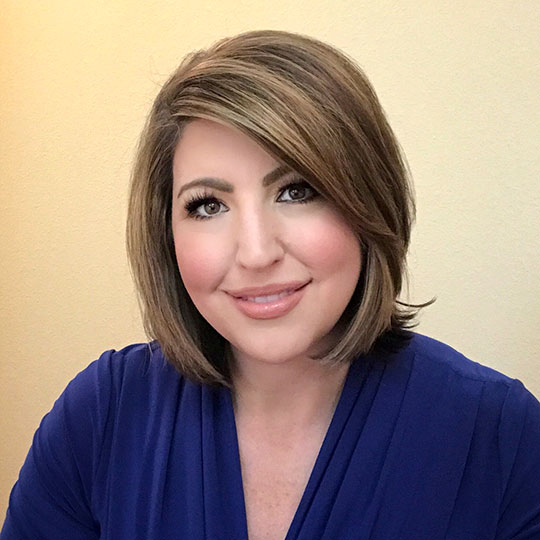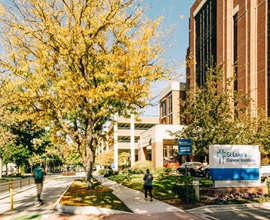Idaho’s first allogeneic stem cell transplant patient celebrates milestone at St. Luke’s

St. Luke’s doctors, nurses and caregivers lined the Boise hospital halls Wednesday to cheer on a very special patient. Patricia Edwards celebrated her first 100 days since a stem cell transplant saved her life. It was the first allogeneic stem cell transplant ever in Idaho.
When patients reach an important milestone or are discharged from the Boise Hospital, St. Luke’s Mountain States Tumor Institute (MSTI) employees have a long tradition of coming together to show support as patients walk the so-called ‘Hall of Hope.’
Edwards received Idaho’s first allogeneic stem cell
transplant in May as part of her treatment for myeloid leukemia. Her doctors
say it was Edwards only chance at survival. Without it, she would likely only
live four-to-six months more. Edwards chose the transplant, and 104 days later,
was thrilled to ring a new bell hung by the MSTI team on 4 South in Boise just
to mark the occasion. The bell is a special tradition on the fourth floor where
cancer patients receive care.

“All the doctors and nurses, I just celebrate all of you and are so grateful for the incredible care I’ve received while I’ve been here. Thank you all very, very much,” Edwards shared with the MSTI staff.
“It’s Important to take time to stop and recognize these milestones and important markers in a patient’s care and treatment,” said Jody Acheson, Bone Marrow Transplant/Hematologic Malignancies Program manager for St. Luke’s MSTI.
While St. Luke’s MSTI has performed more than 400 autologous transplants over the last 25 years using a patient’s own stem cells, this was the first allogeneic transplant. The difference is stem cells are taken from a separate, healthy donor’s bone marrow or blood then given to a patient who has received high-dose chemotherapy and/or radiation. In Edwards’ case, her sister Sheila Eyre was the perfect match and traveled from the United Kingdom to make the donation.
Until now, in order for local patients to receive this type of transplant they had to travel and temporarily live in Salt Lake City or Seattle for three-to-six months. The transplants have typically only been offered at university hospitals due to the complexities involved in giving someone a new immune system to fight the cancer. A caregiver was also required to join the patient and often resulted in separating or uprooting families for months at a time, in addition to the added expense of a second home. Edwards was preparing to go to Utah.
"One of the things that bothered me the most was that I'd have to be there for three months. And I'm a homebody so I like to be home. So that was really distressing to me because I didn't want to be gone for that long," she said.
Because of St. Luke’s new Blood and Marrow Transplant (BMT) Program, Edwards was able to remain in Boise the entire time, spending part of her time at St. Luke’s and part of her time at home.
“Typically the 100 day mark is when patients could return back home from outside site,” Acheson said. “Being home makes her care so much better because of the family support she might not have had somewhere else, or the added stress on the family having to travel.”

Allogeneic transplants are used to treat specific types of cancer that destroy or damage bone marrow. Those include acute leukemia, myelodysplastic syndrome, myeloma, aplastic, anemia and refractory lymphomas. St. Luke’s is currently offering the treatment for adults, but anticipates expanding the program to include more life-saving treatments for more patients.
St. Luke’s MSTI was also the first site in Idaho to be designated as a National Marrow Donor Program (NMDP) Apheresis Center. That allows blood and marrow donors to have their stem cells harvested in Boise rather than having to travel out of state saving them time away from home and travel expenses.
As for Edwards, she will continue to recover at home for an additional few weeks to build up immunity before starting her next round of chemotherapy.
“This experience has truly confirmed that treating our patients takes a village. We have a strong and committed village,” said Meghan Cardoza, St. Luke’s Interim Director 4 South Oncology/MSTI. “I am proud of our team as we have collaborated, learned from each other and have encouraged each other through this new process. Trish has been inspiring and is a perfect example of why this work is so important.”
About The Author

Anita Kisseé was the Treasure Valley public relations manager for St. Luke’s Health System.


